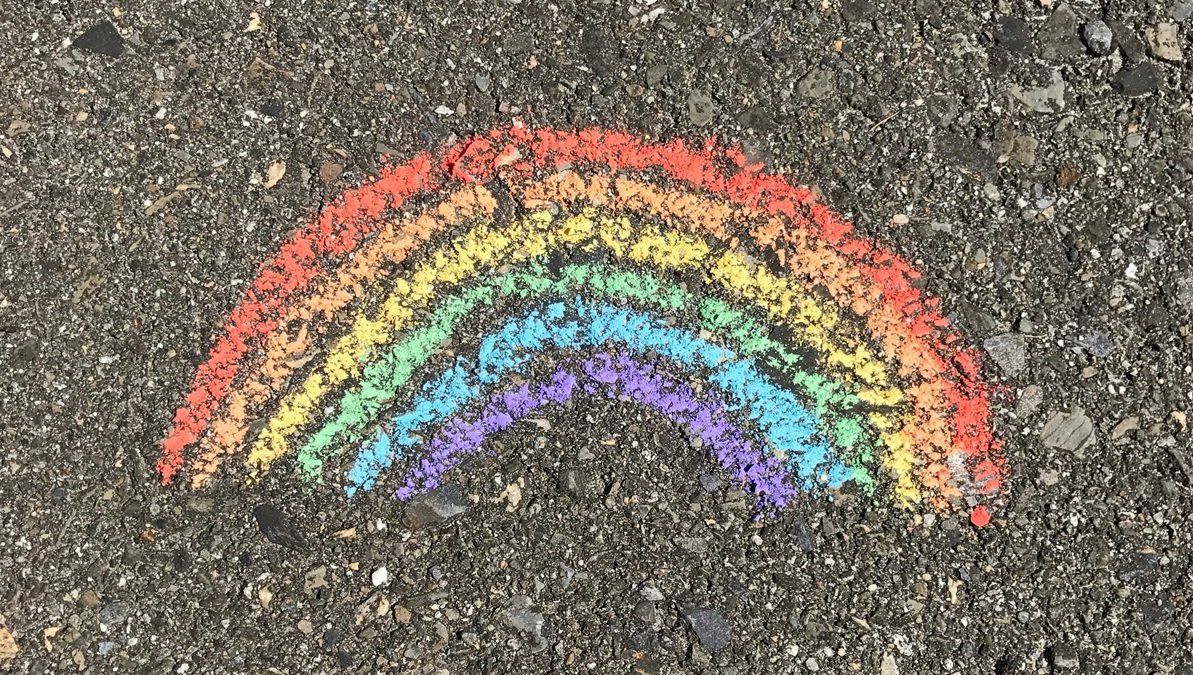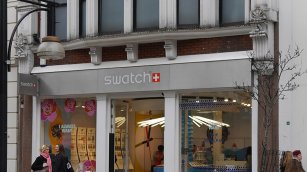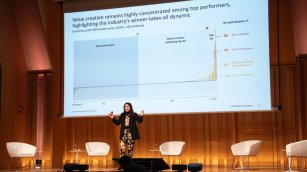A grayer rainbow: Fashion Retreats From Pride Celebrations Amid Rising Reactionary Backlash
Anti-equality and anti-diversity policies set the political agenda in the United States and parts of Europe, making the celebration of Pride something that brands do not hide, but show with little aplomb.


Pride, but discreetly. This is the feeling that is breathed in the environment of fashion brands, which have traditionally taken advantage of the Lgtbiq+ claim to show their support for the collective and, incidentally, increase their popularity. This year, however, fashion is lowering its profile. The conservative trend that is sweeping the United States and Europe is being transferred to marketing, which prefers to distance itself from its positions on sexual diversity and inclusion. Whether for fear of political repercussions or for fear of pinkwashing.
What was once euphoria, with shop windows full of rainbows, garments made especially for the Pride collection and numerous posts on social networks, this year is being worn with discretion with less than a week to commemorate Pride Day, scheduled for June 28. Traditionally, advertising campaigns ran throughout the month, and some even started earlier.
According to a study by the Gravity Research Foundation, 40% of large companies in the United States are cutting back on their involvement in Pride this year. Of the more than two hundred communications managers the agency surveyed, 61% say the main reason for pulling out is fear of retaliation from the Trump administration. Traditional sponsors, among which fashion brands have never been prominent, are pulling out. Companies such as Target, Mastercard, Anheuser-Busch and Deloitte are getting off the boat or minimizing their involvement.
40% of big companies reduce their involvement in Pride in the U.S., most scared off by Trump
A more restrained Pride has also reached fashion. Although some brands persist in their efforts to get involved. Spanish bridal group Pronovias, for example, has taken the opportunity to announce the signing, together with the company's legal representation, of a protocol against discrimination and harassment based on sexual orientation or identity. Zalando, for its part, has launched a campaign on language and queer identity, in the form of a recorded quiz with different episodes that the platform broadcasts on its website. The German company is following in the footsteps of last year, when it launched a short film.

Some companies choose to campaign from the inside out. This is the case, for example, of H&M. The company, which traditionally stood out for its involvement with Pride, has progressively deflated its actions. In its Swiss division, the company has opted to focus on team members, who share their personal messages, "instead of presenting public ambassadors," the company says.
In the case of Inditex, for the moment, only Pull & Bear has launched a collaboration with Portuguese illustrator Ema Gaspar called Proud to love. The rest of the group's chains have not made great expressions in their social networks. In some Stradivarius shop windows, rainbows can be seen, but, in general, discretion prevails in the group as a whole.
Fashion opts for inward-looking campaigns: H&M is the clear example
It is true that, in its latest annual reports, Inditex has introduced the possibility for employees to identify themselves as non-binary gender. At the moment, only 28 people globally have identified with this option, three more than in 2023. At Spanish Mango, although its 2024 annual report has a section dedicated to diversity, equality and inclusion, there is no reference to the Lgtbiq+ community.
In the U.S. market, Gap does take a positive stance. On its website it states the need to fight for the Lgtbiq+ community, and has launched a playlist on Spotify. In fact, earlier this year the company rejected a proposal from the National Center for Public Policy Research, which literally asked it to end its diversity, equity and inclusion programs. Far from that, Gap has teamed up with the New York-based magazine Paper, which deals with issues related to the Lgtbiq+ community.
Another company that stands out every year for its actions is Levi Strauss, this year with its Meet you in the park campaign. Companies such as Vogue, Calvin Klein, Diesel, Urban Outfitters, Converse, Saucony, Vans, Reiss, Puma and Adidas have also given their support to Pride. In the optical sector, Betsey Johnson, Eyebuydirect and Knockaround have launched collections.

Among those lagging behind, Nike stands out. It has historically launched entire collections, but 2023 was the last time it did so, with its No Pride, No Sport campaign. This year, it is not expected. And in its inclusivity section, on its website, they make no reference to the matter either.
The role of brands in Pride is in question: billing at their expense causes a bad image and not participating, too
Consultant and former head of inclusion and diversity communications at H&M, Ona Bascuñán, confirms that this year there is a "general perception that companies are keeping a low profile for Pride, but not just this month.The consultant and former head of communications at H&M, Ona Bascuñán, confirms that this year there is a "general perception that companies are keeping a low profile with Pride, but not only this month, but also in general, with inclusion and diversity policies".
In addition, fashion brands are more likely to opt out of campaigns that include product sales. Although many of them donated the profits to associations fighting for LGBT+ rights, in terms of repercussions, "it was not clear that they could make an economic profit from a day that is not a celebration, but a demand," Bascuñán argues.
On the other hand, the expert emphasizes the widespread fear among companies of being accused of greenwashing. This concept refers to the marketing used to show companies or actions as sustainable when they are not. Combating this greenwashing has been the objective of the most recent European regulations.
Greenwashing applies to sustainability policies, but the same concept can be taken to other areas." Companies know that social responsibility policies follow environmental ones," says Bascuñán. In fact, there is already a term to refer to these practices. It is pinkwashing, which describes political and marketing strategies that aim to inflate the inclusive and sympathetic strategies of the Lgtbiq+ movement to improve brand perception.
Brands avoid using words like 'diversity' and 'inclusion'
For some industries, talking about diversity and inclusion is no longer popular. According to the Gravity Research Foundation report, Fortune 100 companies (the ranking of the 100 companies with the highest turnover in the United States) have publicly mentioned the word diversity 72% less compared to last year. Mentions of inclusion have also fallen, with 34% less being used.
The acronym DEI, which stands for diversity, equity, inclusion, has been used 98% less, according to data extracted after analyzing 1,300 corporate documents filed between 2023 and 2025. The decline has been progressive. For example, in 2024, companies opted for more neutral language, changing diversity to inclusion. However, this year the decline is noticeable: the use of the latter has also fallen by 47%.
These strategic decisions are causing unease among the community. According to a survey conducted by Pew Research Center, 68% of members of the Lgtbiq+ community believe that companies supported Pride month to improve their business, and 35% claim that they did so because of social pressure. Only 16% believe the support was genuine.
According to Gravity Research, 65% of companies surveyed that have decided to participate in Pride say they are already preparing to respond to potential criticism and fear a boycott by more conservative consumers of their stance on diversity, encouraged by management, is on the horizon.













